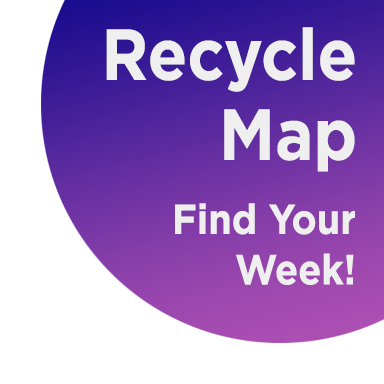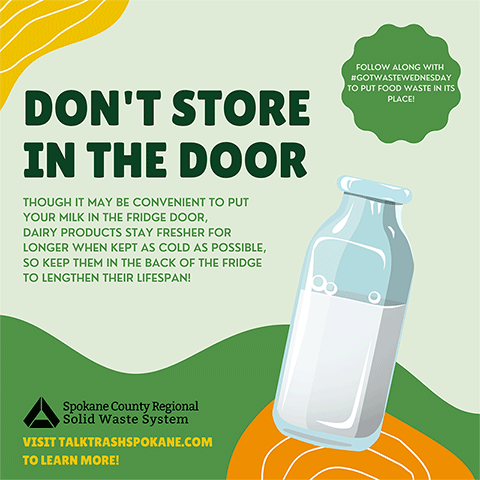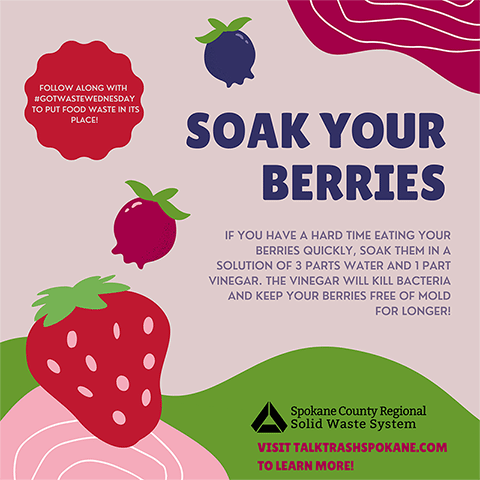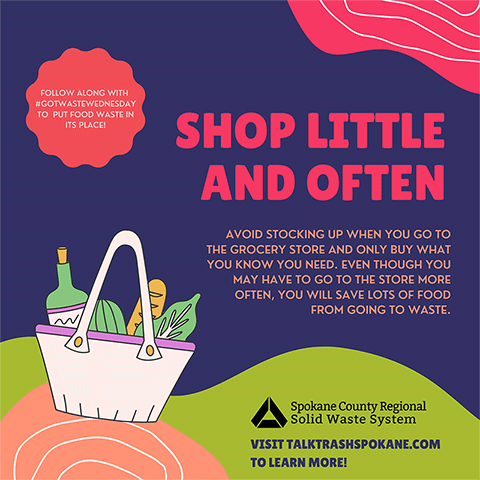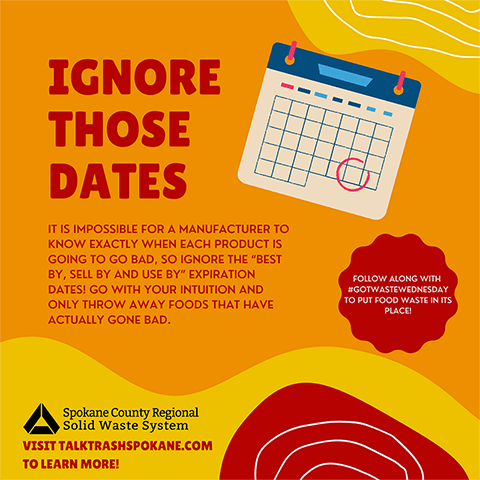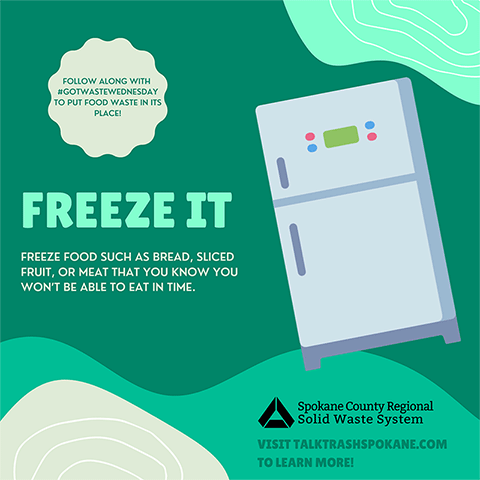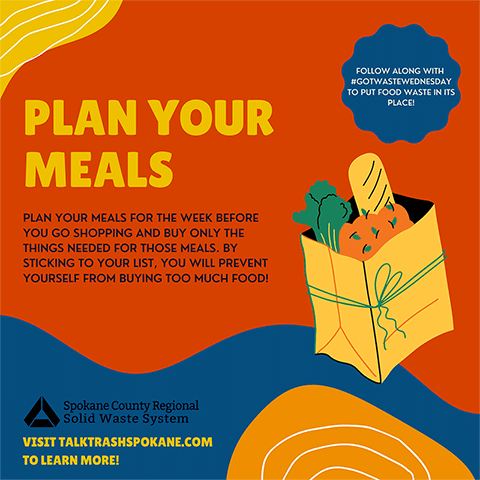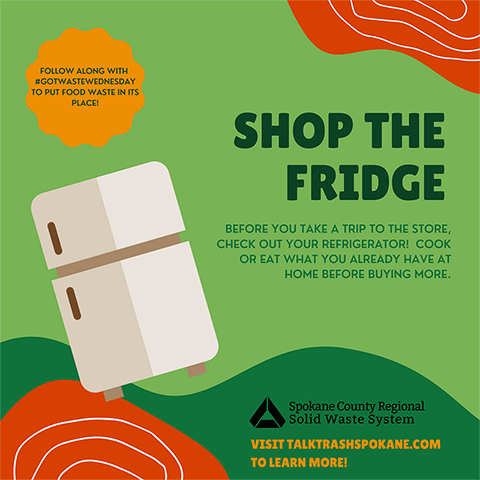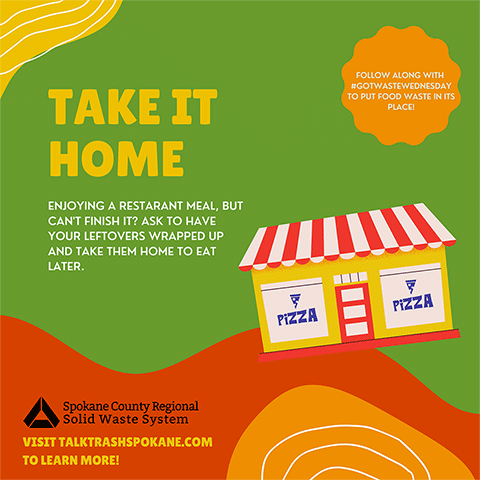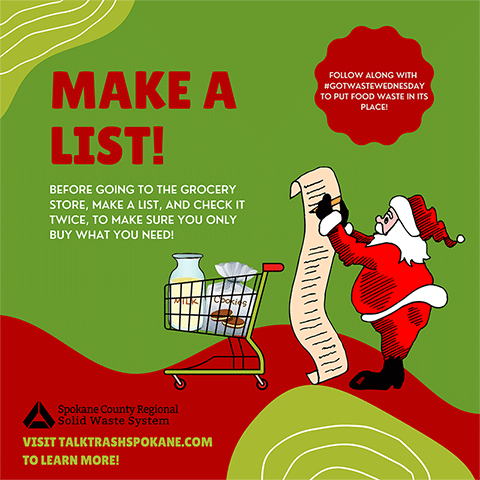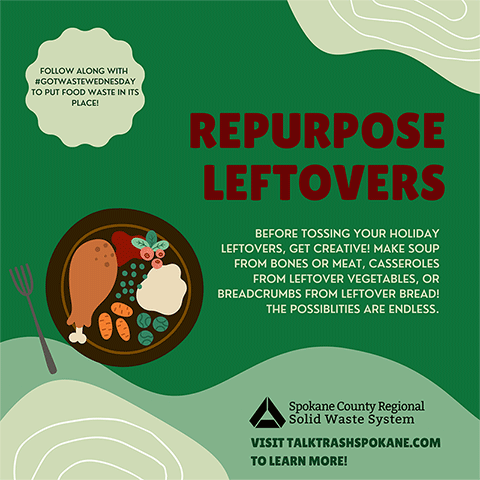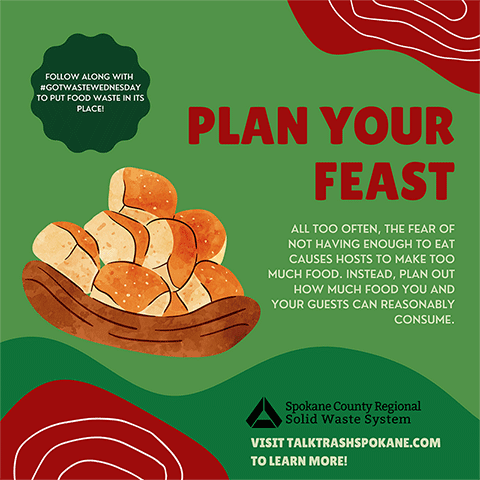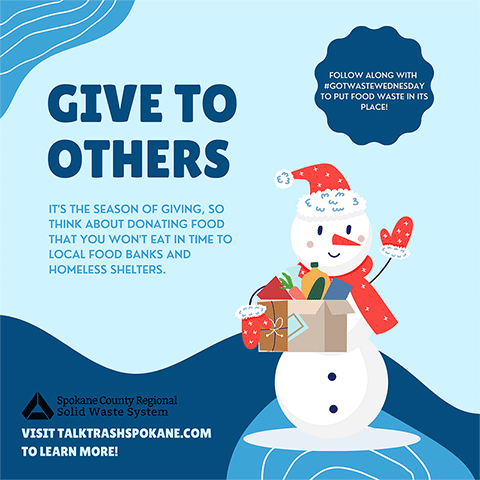Waste Reduction
Reduce + Reuse
Planning and shopping wisely avoids waste, saves money and sustains valuable resources. Here are some examples of actions you can take to reduce waste:
Reducing Wasted Food
Food waste is a problem. In fact, almost a third of everything we throw in the trash in Spokane is wasted food. It includes food we bought too much of and never got around to eating and takeout we thought we wanted but turned out we didn't. If it goes to a landfill, it generates methane, a potent greenhouse gas. If it goes to our Waste-to-Energy facility, it doesn’t burn well so doesn’t generate electricity. Food waste should really go to be composted, but better yet, it should not be generated in the first place.
Reduce the amount of food you toss by learning tips for shopping more wisely, preserving what you buy and even cooking with ingredients you thought were beyond help. Check out more food waste reduction ideas and resources.
Spokane County Regional Waste Ambassadors
Join the Spokane County Regional Waste Ambassador Program!
Are you passionate about waste reduction and creating a sustainable future? The Spokane County Regional Waste Ambassador program empowers community members to make a difference through improved practices, ongoing education, innovation, and volunteerism.
This program takes a broad approach to waste reduction, delving into topics like food waste, composting, litter, textile waste, and the climate impacts of materials management. You’ll also gain insight into our local waste systems and how to drive meaningful change.
How to Get Started
Register for a one-time orientation and begin your journey to improving the health and well-being of people and the planet.
Program Commitments
- Attend a one-time orientation.
- Participate in educational and volunteer activities at least twice a year.
- Subscribe to the online newsletter.
- Pledge to share your knowledge with others.
Be a part of the solution – join us in making Spokane a cleaner, greener place to live!
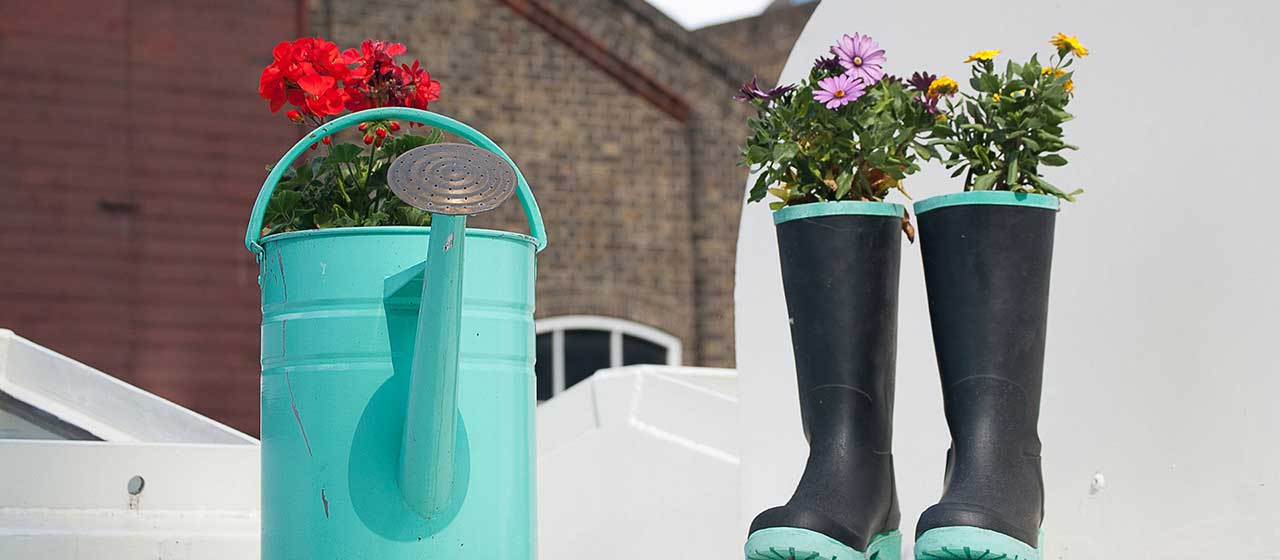
Stop Junk Mail
Over 100 million trees and over 28 billion gallons of water are used to produce one year’s worth of this country's junk mail. Reduce the junk mail you receive by using the following free services. Each service is different, so using all three will give you the best results toward significantly reducing unwanted catalogs, retail promotions, credit card offers, insurance offers and other junk mail.

Free opt-out services
- CatalogChoice is managed by a non-profit organization that works with over 8,000 companies to encourage them to voluntarily honor your opt-out requests. Use the service to stop unwanted mail and catalogs that you currently receive.
- DMAchoice allows you to remove your name from the marketing lists of 3,600 companies and organizations that are members of the Direct Marketing Association (DMA). DMA represents about 80% of the total volume of marketing mail in the U.S., and they require their members to honor opt-out requests. Use the service to keep your name off future prospecting lists.
- National Do Not Mail List is managed by a direct mail company. They offer a free online service to help you remove your name from marketing lists used by mass mailers. Use the service to keep your name off future prospecting lists.
- OptOutPreScreen.com allows you to remove your name from lists that the consumer credit reporting companies Equifax, Experian, Innovis, and TransUnion sell to companies for prescreened and preapproved credit card and insurance policy offers. The consumer credit reporting companies are required by law to honor your opt-out requests.
Will these services stop all junk mail?
While you can greatly reduce the amount of junk mail you receive by using opt-out services, you will not be able to stop all junk mail. Some mail is sent to all households in your area—such as political mail and advertisements from local stores, grocers, and restaurants. These offers may not have opt-out options.
You'll also continue receiving mail from companies that you currently do business with. To stop these types of offers, directly write or email each of the senders.
Stop phone book delivery
Use National Yellow Pages' Consumer Choice & Opt-Out to stop phone book deliveries to your home or business
Other Examples
- Downsize your garbage can.
- Avoid purchasing/using single-use plastic items. Utilize the bulk section at your grocery store, and buy items with recyclable or compostable packaging. Use reusable water bottles, grocery bags, coffee mugs, etc.
- Make your own household cleaners.
- Refuse what you don’t need—for example, opting out of a plastic straw at restaurants.
- Reduce food waste by planning meals and making grocery lists.
- Consider buying items used instead of brand new.
- Ditch paper towels and use washable rags instead. You can make the rags out of old towels or T-shirts you might have otherwise disposed of.
- Utilize “collaborative consumption” options – libraries, used bookstores, consignment stores, etc. Share tools and other rarely used items. Donate or sell clothing and other items you no longer need.
- Use Tupperware, reusable produce bags, etc. instead of storing food items in plastic bags.
For more ideas, contact the Solid Waste Department at 509.625.6580 or email solidwaste@spokanecity.org.

